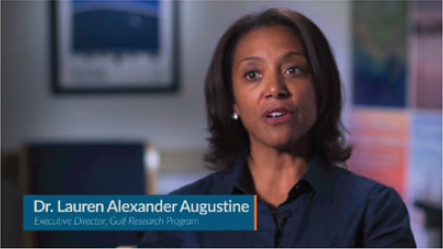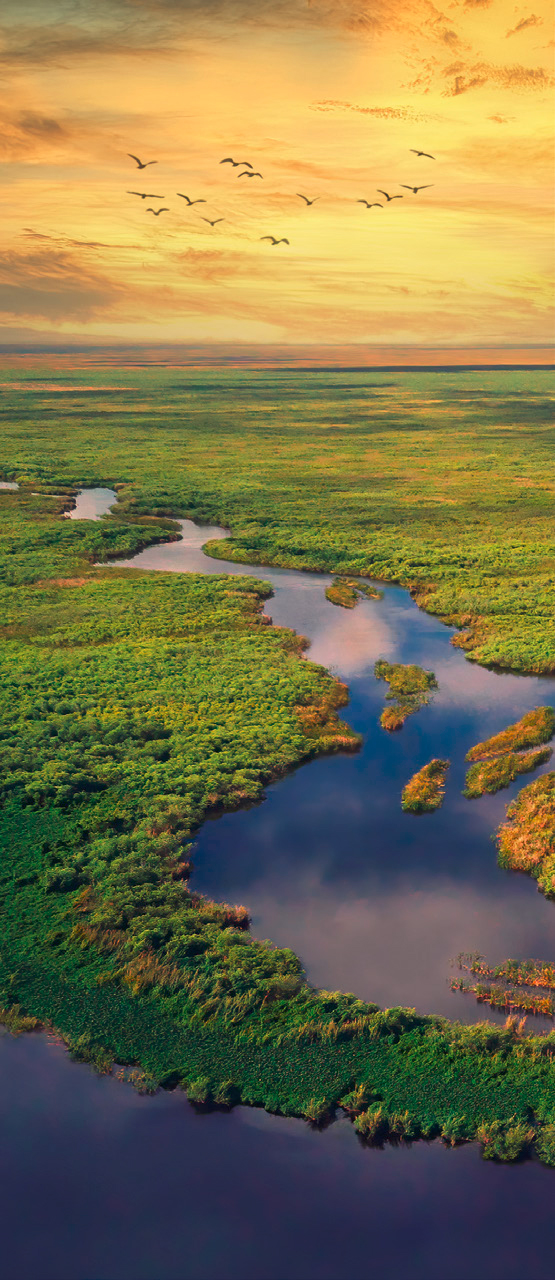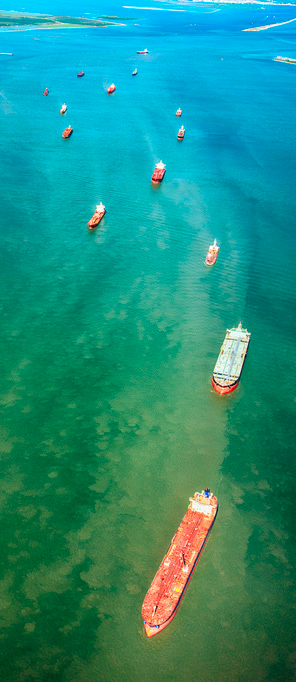GRP Commemorates 10 Years Since the Deepwater Horizon Disaster in the Gulf of Mexico

In April, the GRP commemorated 10 years since the Deepwater Horizon disaster in the Gulf of Mexico region through a series of online events. The GRP remembered the 11 lives lost on the Deepwater Horizon oil rig and highlighted the enormous efforts of the responders in the commemorative video that featured some of the leaders who helped the nation respond to the event, including Admiral Thad Allen and the National Academy of Sciences’ president, Dr. Marcia McNutt. The GRP also started a webinar series, which explores the importance of science in increasing offshore energy safety.
New Consensus Study Series to Monitor Progress and Change in the Gulf
The GRP launched a new consensus study series in 2020 that focuses on documenting trends and progress and identifying challenges, knowledge gaps, and emerging needs. The Series on Decreasing the Risk of Offshore Energy Operations will document the progress of the safety of offshore oil production. The Series on Long-Term Environmental Trends in the Gulf of Mexico will document progress toward environmental protection. In 2021, the GRP will launch the Series on Progress Toward Human Health and Community Resilience to document progress toward health and resilience of Gulf coast communities.
Get to Know the New GRP Boards
In keeping with the new strategic plan, the GRP created five new program units with the teams and leadership needed to better drive its work forward. The program units appoint expert volunteers to committees or boards to do horizon scanning, set strategic directions, and develop programs and activities. The following are snapshots of each program unit.

| Board on Gulf Education and Engagement (BGEE) | The Board on Gulf Education and Engagement seeks to support a diverse workforce and citizenry of environmentally and scientifically literate people who will become the skilled professionals of tomorrow. BGEE runs popular GRP Fellowship Programs and the new Gulf Scholars Program, all of which facilitate learning inside and outside of formal educational settings. BGEE’s work will include an intentional focus on the diversity of the Gulf region population and dedicated inclusion of Historically Black Colleges and Universities, Minority-Serving Institutions, and Hispanic-Serving Institutions, as well as community colleges and vocational schools. |
| Gulf Environmental Protection and Stewardship Board (GEPS) | The Gulf Environmental Protection and Stewardship Board strives to protect and enhance the coupled human-natural systems of the Gulf of Mexico and its coastal zone by connecting science and management to achieve sustainable outcomes. GEPS will also provide useful and relevant information as emergin issues of a changing climate, energy sources and uses, and human-natural systems challenge the Gulf Coast. The GEPS Advisory Board will be appointe in 2021. |
| Gulf Health and Resilience Board (GHRB) | The Gulf Health and Resilience Board funds and supports research and projects that develop approaches and solutions that advance science and understanding in health and community resilience and applies science in communities to support local efforts. The major goals of GHRB are to (1) reduce inequities in health and community resilience, (2) advance research and practice in health and community resilience, and (3) build the capacity of community stakeholders to improve their health and community resilience outcomes. |
| Gulf Offshore Energy Safety Board (GOES) | The Gulf Offshore Energy Safety Board will work to develop opportunities to reduce the systemic risk of offshore energy activities. Understanding, managing, and reducing the risks associated with offshore energy systems requires collaboration and trust across industry, regulators, academic researchers, and broader stakeholder communities. GOES will interact and work with these groups to enhance communication and coordination. Ultimately, GOES will identify research gaps and develop research and program opportunities to fill those gaps, further enabling safer offshore energy operations in the Gulf of Mexico and the Outer Continental Shelf. |
| Gulf Data, Analytics, and Impact Board (GDAI) | The Gulf Data, Analytics, and Impact Board strives to inform decision making by identifying and collecting data, GRP program outcomes, and the best available scientific information accessible to decision makers and others for use in the Gulf region. GDAI will provide oversight and support of data management and governance activities by GRP grantees, continuous program evaluation working with program leaders across the GRP, and sustain productive partnerships with data-related organizations and consortia already in the Gulf. The GDAI advisory board will be appointed in 2021. |

Meet Our New Senior Staff Members
Jim Pettigrew Named New Director of the Gulf Offshore Energy Safety Board
Retired Navy Captain Jim Pettigrew has joined the GRP as the new Director for the Gulf Offshore Energy Safety Board. Throughout his three decades in the Navy, Pettigrew worked predominantly in operational oceanography, surface warfare, and information warfare; managing and mitigating risk at all levels of operations. Prior to joining the GRP, Pettigrew was the Principal Investigator and the Director of Operations for the Ocean Energy Safety Institute (OESI). The OESI is a partnership among Texas A&M University, the University of Houston, and The University of Texas at Austin focused on offshore-related technologies and activities to help ensure safer and environmentally responsible offshore operations. Pettigrew received his M.S. in physical oceanography and meteorology from the Naval Postgraduate School his B.S. in ocean engineering from Texas A&M University.
The GRP Welcomes Donald Boesch as the Senior Scholar for the Environmental Program Unit
Celebrated marine ecologist Donald Boesch joined the GRP as its first Senior Scholar in September 2020. A native of New Orleans, Boesch brings decades of scientific knowledge and organizational experience, together with a passionate interest in the future of the Gulf of Mexico and continental shelf environments. Boesch has served on numerous National Academies committees, including as the Chair of the Ocean Studies Board and as a member of the Committee on America’s Climate Choices. A primary focus in this new role will be to help shape and implement the activities of the GRP environmental program unit, as well as to advise on activities in the GRP’s work in offshore safety and health and community resilience.
Charlene Milliken and Dan Burger Lead the Health and Resilience Board
Charlene Milliken is a Senior Program Manager co-leading the Health and Resilience Unit’s two major efforts: the Gulf Health and Resilience Board and the Enhancing Community Resilience (EnCoRe) Initiative. Prior to the GRP, she managed programs and projects with the National Academies’ Policy and Global Affairs’ Resilient America Program, partnering with communities to build community resilience to disasters. Before coming to the National Academies, she spent 7 years at the U.S. Department of Homeland Security’s (DHS’s) Science and Technology Directorate participating in programs and activities related to community resilience, terrorism, technology transition, and social media use during disasters. Milliken was an American Association for the Advancement of Science National Defense and Global Security S&T Fellow (2007–2009) and a DHS Research Fellow (2009-2012). She has a B.A. in international relations from the University of Southern California and a Ph.D. in anthropology from the University of Pittsburgh.
Dan Burger is a Senior Program Manager for the GRP. Burger’s work focuses on improving community health and resilience through applied research, strategic partnerships, and community-based capacity building. Prior to joining the National Academies, Burger held senior management and leadership positions for the South Carolina Coastal Zone Management Program, working in support of intergovernmental coastal resource management, hazard mitigation, and resilience planning efforts. Burger is also a founder and the former chair of the Charleston Resilience Network, a collaborative effort among public, private, academic and nongovernmental organizations to enhance regional decision making and improve the resilience of social, physical, and economic systems. Burger has served on numerous regional and national advisory boards, including an appointment to the National Academies’ Policy and Global Affairs’ Resilient America Roundtable. Prior to his work in South Carolina, Burger worked to advance environmental public policy and build the capacity of nonprofit organizations in Maryland. He is an honors graduate of Western Maryland (McDaniel) College and holds an M.P.A. in urban public affairs from the College of Charleston.
Karena Mothershed Joins the GRP as Lead of the Board on Gulf Education and Engagement
Karena (Ruggiero) Mothershed is a Senior Program Manager for the GRP responsible for leading education; training; engagement and outreach activities, including oversight of the flagship fellowship programs; management of the K–12 education grants; and development of new programs and projects. Prior to joining the National Academies, she was the Director of Education at an international environmental nonprofit based in Washington, DC. Mothershed has worked in environmental and climate change education as an informal educator for several years and has conducted research on the development, capacity, and politics of state environmental literacy plans. She holds a Ph.D. in education with a focus on science and environmental education from the University of Tennessee, Knoxville, an M.A. in political science from The University of Rhode Island, and a B.A. in journalism and environment and natural resources from the University of Wyoming.






